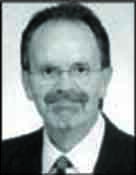 | William L. Park, OD, FAAO is in private practice in Wichita, KS. He works exclusively with patients referred for low vision evaluation, low vision rehabilitation and neurological vision loss. He is a past Director of Low Vision Services, Lions Research & Rehabilitation Center, Wilmer Eye Institute-Johns Hopkins University. Dr. Park can be reached at William L. Park, OD, LLC, www.parklowvision.com, 610 N. Main, Suite 201, Wichita, KS 67203, (316) 440-1690 or drpark@parklowvision.com. |
Vision
2011-03-01 11:31:00
Aging in place
Answer: Perhaps the best way to explain it is, “It’s what you would want and what you would do if you could.”
How do we function as a society with baby boomers and the aging population who want to remain in their homes? How do we solve the problem of independent travel and activities of daily living without the ability to drive? What are the considerations for adult children and the toll on them when caring for aging parents?
By the year 2025, senior citizens will outnumber school-age children. Having experienced four aging parents in the above predicament, I can say that every family with baby boomers needs to consider what they are going to do for their family and for their parents.
While serving as a co-investigator in “Interventions for Visual Loss for Nursing Home Residents” (EY15812 NIH/NIA 1999-2003), I evaluated residents in nursing homes all along the eastern shore of Delaware and Maryland with a vision team of 30 or more. I have seen that there is a very real calling for addressing the issue of complacency and belief that “it will not happen to me.” Unless you are independently wealthy, you need to be concerned.
The good news is there are mechanisms to buffer the dilemma. The first is that overall health is being monitored and maintained to the highest level by consistent evaluation of systemic health by personal medical practitioners and directed ancillary staff. At the same time, vision issues that are likely to be prevalent as a matter of aging, such as cataracts, glaucoma, macular degeneration, implications of diabetes, neurologic and chronic disease, are being addressed. In addition, greater emphasis is being placed on interdisciplinary vision rehabilitation being provided at the very forefront of vision loss.
Independence may depend on rehabilitation provided by skilled, caring healthcare providers who specialize as a team in meeting those functional goals paramount to quality of life. Many of these deficits and concerns can be improved or resolved through diligent efforts and rehabilitation provided by a low vision rehabilitation specialist, occupational and/or physical therapist, speech and language therapist, behavioral health specialist, orientation and mobility specialist and a certified driving rehabilitation specialist, if appropriate. In my professional setting, all of this rehabilitation is accomplished in one building on the same floor, unlike in my previous university faculty positions, in which the team was sprawled throughout various buildings or, in many cases, throughout the city.
Research to address the fear of loss of independence becomes even more important with the anticipation of the escalation of baby boomers, which will dramatically increase the number of persons in the United States who are affected by age-related macular degeneration and previously mentioned vision impairment issues resulting from aging.
I am very pleased to announce the fourth year of participation by residents of Kansas in the Johns Hopkins Low Vision Rehabilitation Outcome Study (LVROS). Currently, my practice has enrolled and completed the second highest amount of participants (all in the state of Kansas) versus Johns Hopkins University of 28 sites in the study. This research may influence governmental agencies when determining whether to provide funding to cover rehabilitation services for people who are visually and neurologically impaired.


